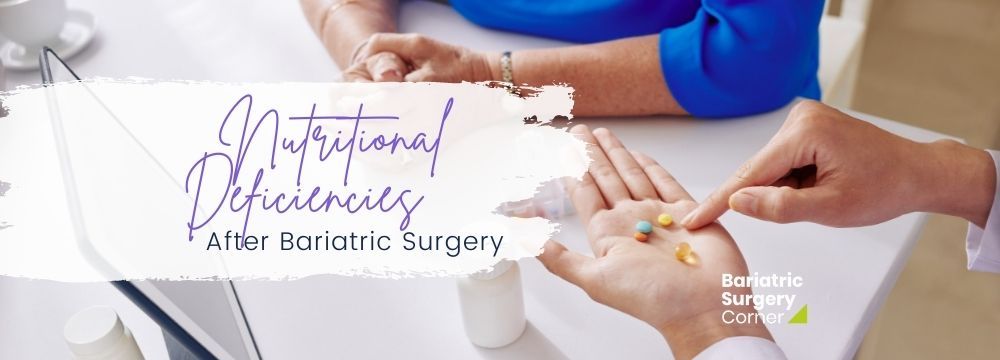Nutritional Deficiencies After Bariatric Surgery

Vitamin deficiencies are a possible side effect of bariatric surgery, and as such, every patient will be started on a daily multi-vitamin. The degree to which a patient may experience nutritional deficiencies largely depends on several factors. First is the person themself – many people have difficulty absorbing one vitamin or another. Some have chronic Vitamin B12 deficiencies, while others will have trouble retaining Vitamin D. Over time, with proper testing, your surgeon will understand the root of these deficiencies and address them appropriately. The second is the procedure performed. The malabsorptive components (where part of the small intestine is bypassed) of a gastric bypass or duodenal switch lend themselves to a greater chance for nutritional deficiencies than purely restrictive procedures such as the gastric band or gastric sleeve. Finally, your lifestyle will play a key role. Remember, after surgery, you will likely not get all your vitamins and minerals from food alone – even from those foods that are nutrient-dense. Common nutritional deficiencies are:
- Vitamin B12 and other B Vitamins
- Calcium
- Vitamin D
- Vitamin C
- Iron
- Micronutrients
Management of Nutritional Deficiencies
Before and after your bariatric procedure, you will receive a comprehensive blood test. This will include readings on vitamin and mineral levels that show any deficiencies. To avoid future complications, your surgical practice will prescribe appropriate vitamin and nutritional supplements based partly on these blood counts. No matter what procedure you have undergone, you will likely stay on a daily multivitamin for the foreseeable future. This multivitamin is usually sufficient to ward off most possible deficiencies. Blood counts will be taken approximately once a year after the first-year post-surgery. However, between blood tests, it is essential that you report any strange feelings to your primary care physician or surgeon’s office. Even the slightest nutritional deficiency may cause significant side effects.
A Note on Protein
Protein is one of the essential nutrients to consume after surgery. Not only does protein allow the body to heal faster after surgery, but it also allows for better long-term weight loss. Protein is much denser than carbohydrates and fats and stays in the alimentary system longer. This means that patients will feel full for an extended period. It is difficult to consume the amount of protein you need each day through food alone. That is why many practices will recommend protein shakes or bars.
Do You Need Bariatric-Specific Proteins?
The short answer is likely no but speak to your surgeon. Bariatric-specific proteins can be expensive, and you may be able to find inexpensive alternatives. However, be sure that the protein supplements you choose are not high in fat and high in sugar as they will only work against your weight loss. You may wish to consult with a nutritionist to ensure the shakes and bars you choose work well.
Refer to your post-bariatric surgery patient packet for guidance on protein intake.
